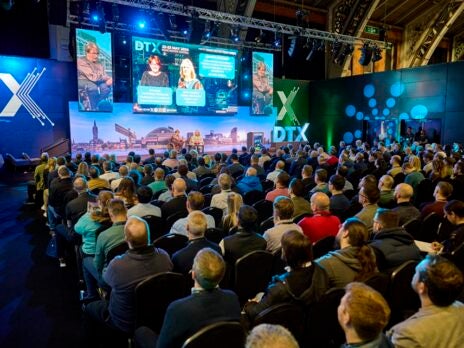To believe that the market cycle has been repealed and that Wall Street can continue its onward and upward rise indefinitely is as sensible as believing that you are never going to die. You may well make it to 100 although the chances are still not very good, but immortality? Get real! The weekend prints in London were full of market forecasts for 1997, most of them pretty bearish – but then this time last year, it was easy enough to find bears of Wall Street, and while Tokyo has become largely decoupled – on the upside at least – where Wall Street leads, the rest of the world still follows. And if you had taken on board what was being said this time last year, you would have missed out on some very handsome gains in both New York and London (don’t mention Tokyo). Trouble with those gains is that they are only real as long as they are realized – and at some point, the more prudent of those sitting on handsome gains are going to start getting jumpy and thinking that it is time to start realizing them. But, sad to say, the ones at the head of the queue when the early selling starts will be professional investors and those that have seen it all before.
First time investors
It is only when the bear trend becomes unmistakable that all those first time investors in mutual funds, who have geared up to maximize their returns, will start to sell, and won’t be able to get their orders in before some very nasty damage has been done to their wealth. And the professional advisors that are looking to their commissions rather than doing their best to put such novices off committing any more money to the market are doing themselves a grave disservice, because when the bloodbath does come, it is likely to be a case of once bitten, five times shy, and if the experience is bad enough (and 1987 was not a bad experience), many of those people will never again entrust their sadly diminished wealth to those dealing in stocks and shares. And the experience this time around is unlikely to be much like anything that most people have seen in their investing lifetimes, although 1973-74 may well be a closer guide than the short sharp shock of 1987. People talk glibly of a 10% correction on Wall Street, but what would a 40% correction, taking the Dow back below 4,000 feel like? Will it stop there? Once a bearish mood infects the market, it can bedifficult to stem, until people start talking about shares as if they were not worth buying at any price. What is likely to be the trigger this time around? The market is so perverse that poor unemployment figures in the US are taken as a buy signal because they imply that interest rates will not have to go up. Most professionals now accept that inflation is as good as defeated -not least because consumers are finding that dictating prices to retailers is an extremely enjoyable experience, so that just as a spending spree seems ready to take off, it is nipped in the bud as the mass of consumers judge that they will be able to buy whatever it is that they fancy in the inevitable sale that follows any buying pause.
Greenspan
And if they miss that sale, well, there will always be another one along in a minute. Who’d be an inflation bug – or a store buyer – in a climate like that? So, up to now, interest rates have been seen as the big bad wolf – once the yield on government paper begins to look attractive, money will pour out of shares and the bear will be rampant. But the dread rise in interest rates has been postponed so many times, and there is still so little sign of severe overheating in the US economy, that that ogre is beginning to be seen as a paper tiger. Yet almost all the market indicators overshot all the danger signals very many months ago, and shares are on any ordinary assessment very substantially over-valued. Factor in the market’s propensity for always vastly overdoing everything on both the upside and the downside and the risk of staying heavily invested in frothy fashion stocks looks a very serious one indeed. But if it is not to be interest rates or
fears of inflation that trips the market, and if not even Alan Greenspan can throw the trip with his interrogative imprecation it will clearly take something pretty dramatic to do the trick. But no-one should feel comfortable about the fact that Greenspan’s warning went unheeded, for with each postponement of the inevitable, the more painful the eventual fall is likely to be. Will it be as bad as Japan’s sick-to-the-stomach eight-year bear market? Is there any reason why it shouldn’t be? Having seen off the more trivial candidates, the market is now most likely to be spooked by fundamentals, by which we mean real profits from major companies like Microsoft Corp and Intel Corp really falling. Is that an unlikely scenario? Belief in the essential sanctity of the single European currency and the unassailable divinity of its High Priest, the sainted Helmut Kohl, seems to blind even hard- nosed Americans to the fact that this blessed odyssey is leading continental country after country towards the kind of recession that simply feeds on itself and gets deeper and deeper as every remedy is forbidden by the secular creed of the immaculate one.
Glory of Helmut Kohl
Yet finance ministers from Paris to Rome to Madrid and even Athens piously insist that not being among the first to adopt the Euro would be a tragedy rather than a blessing for their benighted economies – which they of course run for the greater glory of Helmut Kohl rather than the poor saps that actually elected them. If most of Europe does slide into recession later this year, it will make a nasty dent in profits at many major US corporations – not to mention the Far Eastern companies and countries that have increasingly been seeking growth by investing in Europe. Already we have had Oracle Corp and then Computer Associates International Inc blaming Europe for unexpectedly weak sales, but if Kohl and Chirac remain as intransigent as hitherto in their determination not to address the structural problems in their economies, then you ain’t seen nothing yet. The mere fact that growth in personal computer sales slowed last year – and if Europe really is on the skids, will all those lovely MMX machines promised to bolster the first half of this year really get sold? – was enough to take much of the gloss off the Far Eastern economies, and no-one can look to Japan for any respite. At that point only the economies of the English-speaking world still look healthy, and if all around them – and the markets on which they depend – are sick unto death, they may be able to escape the worst of the infection but can hardly get by unscathed. So the US is heading for a slowdown, and interest rates won’t rise – what a truly fabulous buying opportunity!





